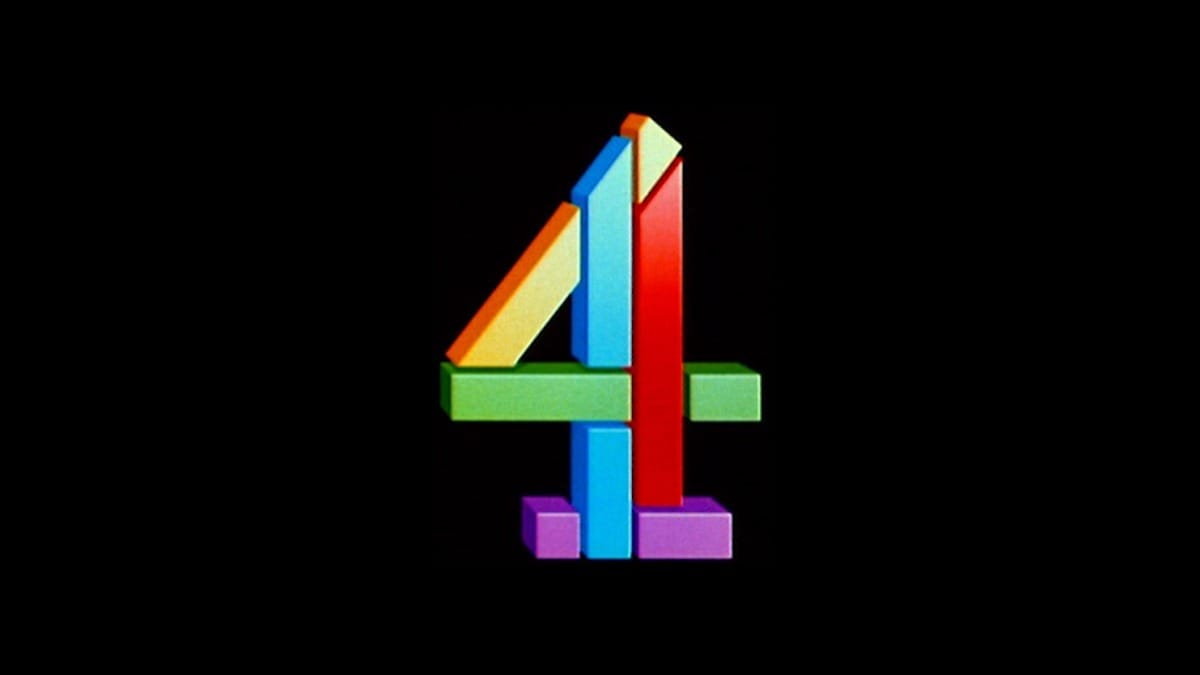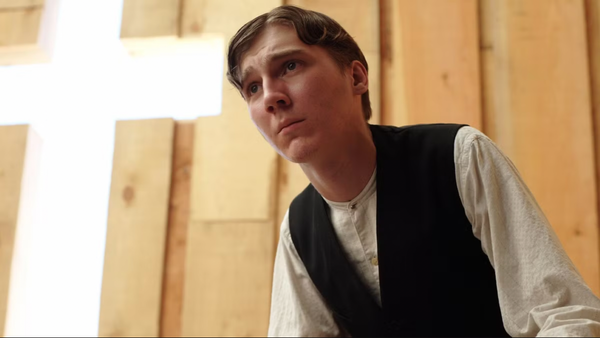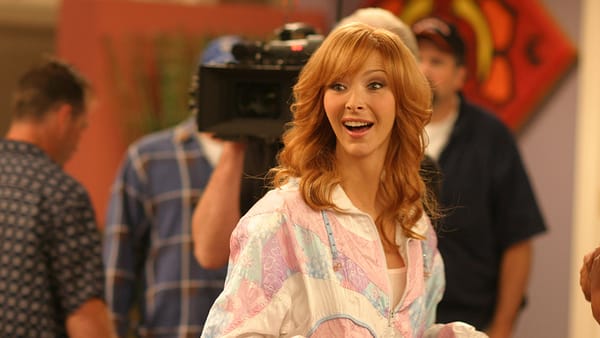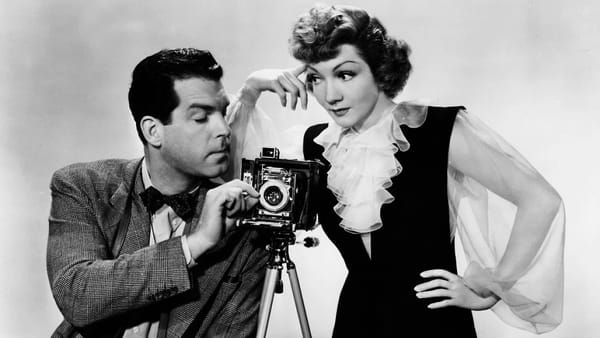Broadcaster For Sale

Channel 4 faces the greatest crisis in its lifetime. Is it possible to save it?
The day that it was confirmed that the UK government intends to privatise Channel 4, my Twitter feed filled up with tweets that drove me up the wall. They were mostly variations on this sort of thing:
I, a person you probably don’t know unless you’re in my immediate circle, am here to tell you I would not have had the career I have had, were it not for Channel 4. This terrible plan must be urgently reconsidered.
I’m not here to get in a big fight with you if you’re one of the many, many people who wrote something like this. It’s a completely understandable impulse. And it’s an absolutely legitimate response if what you need is simply to vent, to lament the UK government’s plan to privatise Channel 4.
To recap for the benefit of people who have no real reason to familiarise themselves with UK broadcaster funding models, and also, should she read this, culture minister Nadine Dorries, who, less forgivably, seems alarming hazy on the details: Channel 4 is a broadcaster which makes all of its money from selling advertising, but commissions public service programmes and films from a range of production companies. It’s a clever little business model that uses not a penny of public money, to support a range of art, films, news, drama, comedy and all the rest of it, with a remit to commission programmes which a commercial or more risk-averse broadcaster might struggle to justify. The current UK government wants to privatise Channel 4, with the minister in charge of this, the romance novelist Nadine Dorries (yes, really) coming to the conclusion that “government ownership is holding Channel 4 back from competing against streaming giants like Netflix and Amazon.” The plan is not dissimilar to the privatisation of the railways, which resulted in the UK being blessed with Europe’s crappest and most expensive railway system.
As I say, if you’re taking to social media simply to have a moan about this, then fair play, that’s the lifeblood of social media. But social media also provides a forum in which, for better or worse, hearts and minds are, occasionally, won. If you fancy having a crack at convincing possibly apathetic members of the general public who might be on the fence that Channel 4 shouldn’t be privatised, and you plan to do this by invoking your own career opportunities, well, all I can say is you better be Olivia Colman. Are you Olivia Colman? If you are Olivia Colman, and you are tweeting that you wouldn’t have a career in the media without the existence of the state owned public service broadcaster Channel 4, then please fill your boots. People LOVE you, as they should. People will in all likelihood want to save the future careers of you and all other Olivia Colmen.
But if you are not Olivia Colman, if you are a social media manager, say, or a commissioning editor, tweeting that you wouldn’t have a career without Channel 4… well, I’m sorry, but that is simply not going to move public or government opinion in a productive direction. I can say this without feeling too rude, having previously worked as both these things. Anyone campaigning for Channel 4’s survival as a public service needs to campaign on the basis of the amazing stuff it has done for the public, and not based on what it has done for the Linked In profiles of people like themselves. Giving a bloody nose to people who work or have worked for Channel 4 is probably a massive bonus as far as the government is concerned.
This extends to all sorts of creative work beyond the people actually employed at C4HQ. When a working class writer announces that they would never have been able to work as a writer were it not for Channel 4, do you really think the government thinks “whoops, as a government that strongly supports working class perspectives, perhaps we’d better think again.” If Russell T Davies says he would never have got Queer As Folk off the ground anywhere but Channel 4, is Jacob Rees Mogg getting on the phone to Nadine Dorries saying “gosh, maybe we’d better rethink this one, Nad? Imagine a world without Queer As Folk!” If a director who migrated to the UK from Nigeria says they would never have made their first short about that experience without Channel 4, again, I’m struggling to picture Priti Patel getting misty eyed over the horrifying possibility of that short film never having existed. Maybe I’m wrong. Maybe when a trans writer credits Channel 4 for their opportunity to write that first script about their lived experience of transition making it to air, Boris Johnson will realise the error of his ways and commit to saving Channel 4. Maybe Matt Hancock was glued to his TV screen watching Jack Thorne’s excellent TV film Help dramatise the epic mishandling of the Covid crisis in care homes. Maybe it was useful for him to see how badly he’d fucked up as health minister.
But I tend to think that the “x wouldn’t have been able to make y” argument is not going to be a winner when you think about who is in this government and how they likely feel about x and y. It seems likely that the entire point of this reform is to sink Channel 4, and Nadine Dorries has her own personal reasons for wanting to pit the broadcaster against the streamers and watch it lose its identity and character as it inevitably fails to live up to this ridiculous brief.
Of course, social media opinion is not all about persuading the UK government. If the general public can be shown to strongly support Channel 4, to the extent that privatising it is a potential vote-loser, then the government could potentially hold its nose and perform a U-turn. Stranger things have happened, and at time of writing, this thing has yet to get all the way through the Lords. So we come back to winning the hearts and minds of the general public.
I suspect most of the people who wrote about how Channel 4 gave them their first jobs do know, actually, that this isn’t what will convince people it is worth saving. It’s just the framework that social media gives us for writing about the world. How does this affect ME? What’s MY personal connection? Why is this part of MY narrative? (There are certain types of crises where it is eminently helpful to refract a larger issue through a personal lens. The Roe vs Wade scandal in the US is about abortion, a simple medical procedure that is often hidden or not spoken about. It is useful to see that millions of people’s human right to bodily autonomy is being threatened by one of the most powerful countries in the world.)
But not all issues work the same way. Seeing that a small number of people bagged coveted opportunities to work for a broadcaster does not tap into a groundswell of popular energy. Working in or for TV companies will always be something only a relatively small proportion of the population ever do.
It is also worth pointing out that those complaints often betray a conception of art and creation that has become extremely commonplace, but which we should be wary of for several reasons. Dorries’ description of her detractors as “the Leftie luvvie lynch mob” was revealing, and in some ways, pointing out that Channel 4 gave a first chance to many minorities and people generally underrepresented on either sides of the screen plays into Dorries’ strategy. There is something so predictable about her defence of the move on spurious “culture war” grounds, her faux outrage acting as the clearest sign that privatisation is just another way this government has found to push buttons and dog whistle to their base. This is one reason why it’s important to look not just at who made these programmes, but at who actually watched them. Too much focus on the former suggests a 1:1 identity correlation between creators, on-screen talent and audiences that risks turning Channel 4’s eclectic offering into a kind of "to each their own '' buffet. Representation is important, but we must be weary of underselling the success of Channel 4’s offering in reaching audiences of all kinds, regardless of age, class, ethnicity, sex, gender or sexual orientation.
Channel 4 privatisation is in some ways the type of issue that you would want to campaign in the soft power style of something like the London 2012 Olympics, to find the big beloved cut-throughs that large numbers of people can agree are amazing. When Mr Bean came out to play the keyboard as part of Simon Rattle’s orchestra during the London 2012 Olympic celebration, I felt my cynicism about the whole Olympic enterprise melting away.
But here’s the rub: it’s harder for Channel 4 than the 2012 Olympics team to create these kinds of grand unifying moments, because grand unifying moments are kind of the opposite of what Channel 4’s DNA is telling it to do. Channel 4 is supposed to have an edge, not inspire unity. Channel 4 isn’t funded by licence fee payers who need on a certain level to feel their money is being reasonably well spent. Channel 4 is supposed to rub people up the wrong way. Be polarising. Be divisive. Make trouble. How on earth do you make trouble and get the country united behind saving you at the same time?
It’s gotten harder for Channel 4 to be the controversial cool kid lately, mind you. Like me, Channel 4 is nearly 40 years old. In the 1980s, Channel 4’s rivals in the outrageousness stakes were basically just the BBC and ITV, and it was much, much easier for Channel 4 to be the naughty one. Achieving shock value was a relatively low bar to hop over. That “fuck me, I can’t believe this actually exists!” competition took place on a level playing field, refereed by Ofcom. But now, if for whatever reason I wanted to see a dead body or a man fisting himself or tasteless prosthetic limb porn or somebody eating liquid shit or footage of genital mutilation, I can find all that and worse relatively easily online. When it tries to shock in 2022, Channel 4 finds itself competing in an Ofcom regulated market against the unregulated market of the internet. Nothing Channel 4 can make can ever be more shocking than what can be found online. It can only be shocking via the unspoken addendum: “fuck me, I can’t believe this exists on broadcast television!” It reminds me of when I was thirteen and the teachers at school would put on a pantomime with what felt like quite rude jokes and surprising moments — the IT teacher in drag, a rude pun, that kind of thing. You could have heard filthier, funnier gags on the playground any day of the week, but it always went down a storm because it all felt very risque considering it was being put on by the teachers.
The thing is, the best and most characteristically Channel 4-flavoured commissions have always understood their position as the notional teacher. You are broadcast television, ergo you are an authority figure of sorts. Your most effective controversies will always flow from that fact, not attempt to hide it. The very best Channel 4 programmes have always understood that to truly push the envelope involves paying attention to the envelope as much as the message contained within it. The internet might have no limits in terms of depravity, but it can’t compete with television at being television. Programmes that push the boundaries by deconstructing television formats are often where Channel 4 is able to be most distinctively Channel 4.
I’m thinking of programmes like Brass Eye (1997), which deconstructed the beats and look and feel and self-importance of topical current affairs programmes, duping multiple politicians and celebrities along the way into revealing themselves to be about as well-informed then as Nadine Dorries is today.
Sacha Baron Cohen, in his various guises as Ali G, Borat and Brüno, similarly used his Channel 4 platform to wind up dickheads and have fun at the expense of people like Jacob Rees-Mogg. He was able to do this as a result of the authority that comes with a television crew, that sense that if this is a show for TV then there must be something official about it.
In a generally gentler, slightly more pop-art absurdist vein, programmes like The Adam + Joe Show also understood that there was rich humour to be mined from the idea that this (“this” being anything from stuffed toys enacting scenes from Larry Clark’s controversy magnet Kids, to interrogations of celebrities’ record collections by the fearsome Vinyl Police) was actually going out on one of the UK’s broadcast television channels. Similarly, the genius that was Garth Marenghi’s Darkplace lovingly pulled apart the conventions of will-this-do talking head shows getting misty-eyed over programmes that may not have been much cop in the first place.
Some of Channel 4’s most interesting programming sat at the intersection somewhere between satire and a real example of the thing it satirised. Is Gogglebox the worst idea anyone has ever had for a TV programme, or an Andy Warhol funhouse mirror deconstructing the very fabric of entertainment? Was the Miquita Oliver and Simon Amstell fronted show Popworld a youth-oriented magazine show or a satire of a youth-oriented magazine show? To this day, I think it was genuinely both.
This is why Channel 4 is vulnerable: at its best, the specific and spiky appeal of its best programming can be hard to translate into messaging that elicits a London 2012 type wave of goodwill. The big shows are brilliant, but on the whole, feel less uniquely Channel 4. I can imagine It’s A Sin being made by the BBC, and it very nearly was. Bake-Off started on the BBC. The very reason Channel 4 is worth saving is the same reason it is difficult for it to elicit a mass outpouring of public grief at the prospect of it going away. Channel 4 is supposed to be the cool kid. Cool kids notoriously have trouble being vulnerable and asking for help.
Oddly, I suspect the best case against Channel 4 privatisation is the least cool route of all: the business case. Conservative governments market themselves as being able to get their sums right. The fact that the sums do not add up in this instance may yet trip up this plan. The idea quite simply does not pass the common sense test. The suggestion that Channel 4 could be a direct competitor to Netflix or Amazon in any universe is absurd: they are totally different kinds of companies operating at a totally different scale, with very different strengths and weaknesses. You might as well ask Tate Modern to compete with Tesla. The idea simply doesn’t have business case credibility, and that’s not a vast surprise given Nadine Dorries seems like someone who would have trouble working out how to split the bill 50/50 after a meal out. Hopefully when the numbers are crunched and strategies outlined, practicality will triumph over any ideological satisfaction the government might derive from dismantling such an obvious asset.



